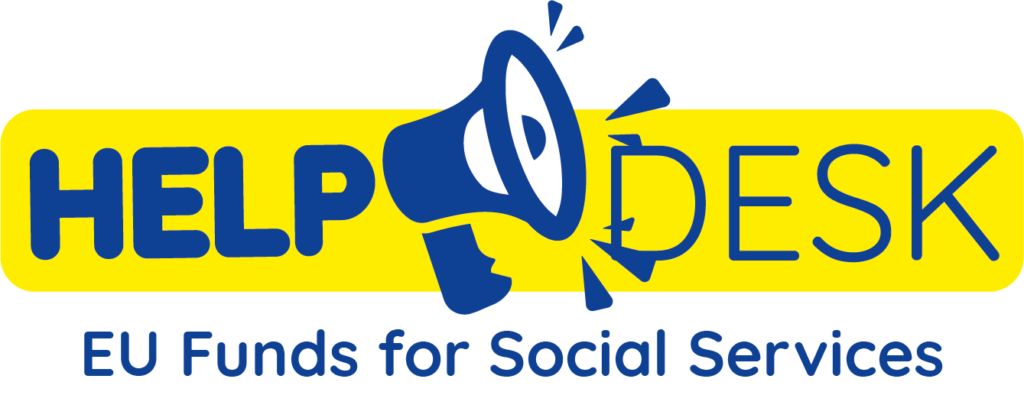The social services sector in Europe is facing a growing need for care and support, as the demand for quality social services is constantly increasing. EU Funds offer opportunities to fund projects in the social services field, but accessing and managing these funds can be challenging for many stakeholders. This is precisely why the Helpdesk project was launched, with the aim of supporting social services in better accessing and using EU funds and to help Managing Authorities in harnessing these resources.
In the project’s initial phase, the consortium focused on gathering evidence on the utilization of ESF+ and ERDF across the 27 Member States and looked into the support structures which are already in place in the Member States, that could be leveraged by social services to gain access to EU Funds.
Now, the partnership is fully immersed in the capacity-building phase, finding solutions to overcome the bureaucratic burden and guiding Managing Authorities and social services on the kind of projects that can be funded with EU funds, and that have the most social impact.
Drawing from this evidence, the consortium identified five key factors that can improve the use of EU Funds for social inclusion:
1. Starting from the Needs.
It is essential to start from the social needs and priorities of vulnerable groups to build European projects. The Helpdesk project started with an evidence-gathering phase, including a survey to get input from social services and Managing Authorities on how they perceive the use of EU Funds for social services and what the barriers are in the 27 Member States. Explore the main findings on our website.
2. Make EU funds intelligible and social friendly.
Recognising the necessity for EU funds to be intelligible and accessible for social service providers, the Helpdesk has developed a user-friendly website to simplify and adapt EU funds for social services. Discover how the European funds are structured in each Member State and what are their aims, strategic objectives and open calls in the Helpdesk’s knowledge map. Still have questions about EU funding opportunities in your country that our knowledge map has not answered? Ask our consultants for help!
3. From beneficiary to practitioners
The lack of training and education in European funds is one of the internal challenges that social service providers are facing in accessing and using these funds. The Helpdesk project is now immersed in the capacity-building stage of the project, where a MOOC, several trainings and a Booklet of Promising Practices is being developed. Learn more about these online training opportunities at https://eufunds4social.eu/e-training/
4. Making the most out of EU Funds.
Accessing and managing EU funds for social services can be a complex and demanding task for Managing Authorities, as well as for intermediary bodies and agencies. That’s why the Helpdesk has developed facilitation tools that aim to simplify and optimize the process of accessing and managing funds from ESF+ and ERDF and will be available on the Helpdesk’s website by January 2024.
5. Fostering collaboration.
Cooperation between Managing Authorities, social services, and the European Commission is key to ensure that funding priorities align with social needs and evidence-based interventions. Therefore, a Technical Guidance is being developed to explore solutions on how to maximize the social impact of ESF+ and ERDF for effective interventions in social services, and will be available on the Helpdesk’s website by January 2024.



